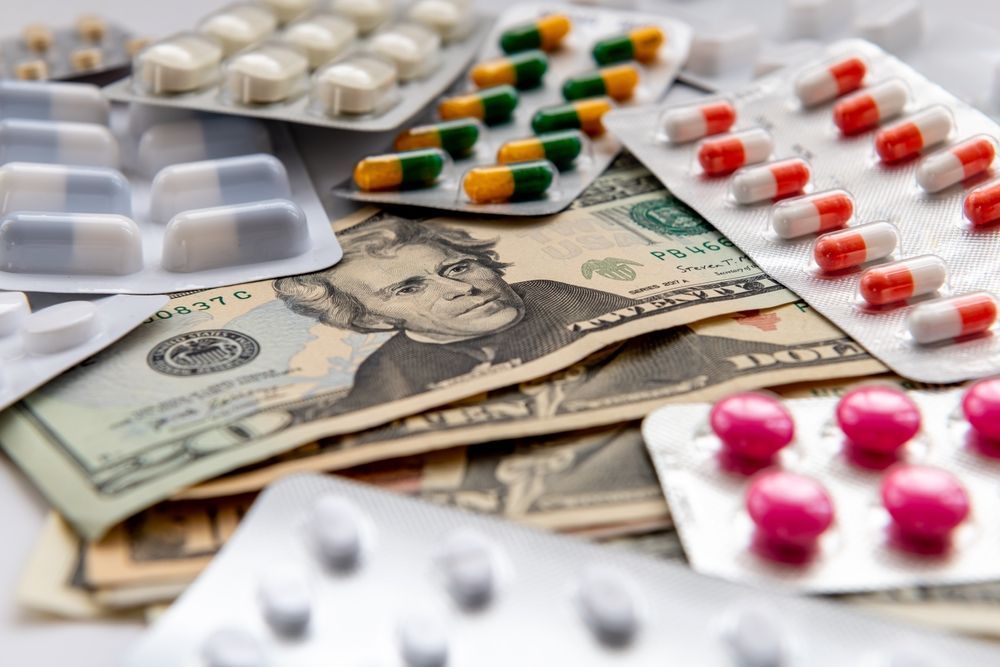Rethinking Big Pharma's Social Contract
Rick Westerdale • September 15, 2025

The central challenge in modern medicine isn’t whether we can innovate — it’s whether Americans can afford the medicines that innovation produces. Big Pharma has delivered astonishing breakthroughs. But instead of ensuring that patients can access them, the industry has built a fortress of patent monopolies, lobbying influence, and marketing strategies designed to maximize profits at the expense of families.
The numbers are stark. One in four Americans reports skipping prescriptions because of cost. Insulin, discovered more than a century ago, can cost hundreds of dollars a month in the United States while patients abroad pay far less. Cancer therapies are often priced like luxury goods, even though taxpayers funded much of the underlying science. Meanwhile, the same companies spend billions on advertising and lobbying — often more than they spend on actual research and development.
This is not a call for Washington to take over healthcare. Government has never made complex systems more efficient by running them directly. But it does have a duty to enforce basic guardrails of competition and accountability. That means ending patent games and “pay-for-delay” schemes that keep generics off the market long after exclusivity should expire. It means cracking down on collusion between drug companies and middlemen that inflate costs under the guise of rebates. And it means streamlining FDA approvals so safe generics and biosimilars can reach patients faster.
International examples prove that reform is possible — not because bureaucracies are better, but because competition and transparency are enforced. Germany and Japan require disclosure of real pricing data and foster rivalries that drive costs down. Canada negotiates in bulk to protect its consumers. The United States can adapt these lessons in its own way, relying on market competition rather than monopoly protection.
Breaking monopolies must come first. Drug makers have mastered the art of extending patents through minor tweaks — changing a pill into a capsule, altering a dosage form, or adding a new delivery device. These tactics keep cheaper generics off shelves for years beyond the original patent life. Rolling back these abuses will open the market to fair competition and bring prices down naturally.
The second step is to open the market further. Safe, effective generics and biosimilars are proven to lower costs by as much as 80%, yet they face unnecessary regulatory delays. By streamlining the FDA process while maintaining rigorous safety standards, patients can see relief at the pharmacy counter without waiting years for approvals.
Transparency is also essential. Today’s drug pricing system is deliberately opaque, with manufacturers, pharmacy benefit managers, and insurers all shifting blame while patients pay the bill. By requiring disclosure of list prices, net prices, and rebate flows, policymakers can shine a light on a system designed to confuse and conceal. Sunlight alone won’t lower costs, but it will make collusion harder to sustain.
Finally, public investment must be tied to public benefit. Taxpayer dollars fund billions in research every year. Yet when those discoveries turn into commercial drugs, Americans are often charged the highest prices in the world. Linking subsidies, tax credits, and federal research support to affordability commitments ensures that public dollars yield public value.
These reforms would not stifle innovation — they would strengthen it. Affordable medicines mean broader markets, better adherence, and healthier populations that benefit from breakthroughs. What undermines innovation is a system so skewed toward profiteering that it erodes public trust. Every story of a patient rationing insulin or abandoning treatment is evidence that we are losing sight of the point of medical progress.
The question is not whether pharmaceutical companies should make profits. They should - drug development is risky, expensive, and vital. The question is how to balance profit with responsibility, ensuring that innovation rewards investors without bankrupting patients. When a person is denied medicine because of cost, it signals a system that has put profit before purpose.
If Big Pharma wants to rebuild trust, it must embrace reform. And if the Government wants to serve its citizens, it must enforce accountability and competition. The next breakthrough will matter little if it remains out of reach for ordinary families.
Innovation that patients cannot afford is not true progress - it is profiteering.
Rick Westerdale has more than 30 years of experience across the federal government as well as in the global energy industry. As a Vice President at Connector, Inc., a boutique government relations and political affairs firm based in Washington, D.C., Rick advises clients on strategy, investment, and policy across healthcare, hydrocarbons, LNG, hydrogen, nuclear, and the broader energy transition.
